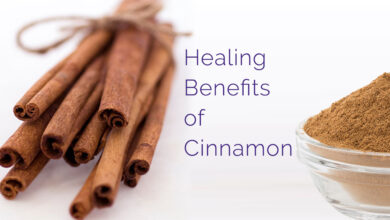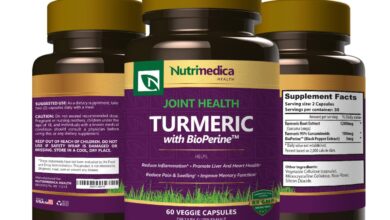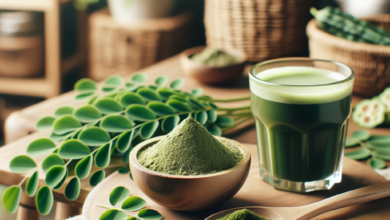
Improve Your Skin & Hair with Cinnamon & Cardamom
Improve Your Skin and Hair Health with Cinnamon and Cardamom Daily is a guide to incorporating these flavorful spices into your daily routine for better skin and hair. From topical applications to internal consumption, we’ll explore the potential benefits, safety precautions, and scientific evidence behind this natural approach to beauty.
This article delves into the historical use of cinnamon and cardamom for skin and hair care, examining both topical and internal applications. It details various methods of use, including recipes for masks and scrubs, and highlights the nutritional value of these spices, exploring potential benefits and precautions.
Introduction to Cinnamon and Cardamom for Skin and Hair
Cinnamon and cardamom, beloved spices in kitchens worldwide, have also held a prominent place in traditional medicine for their potential health benefits. From ancient Ayurvedic practices to modern scientific explorations, these aromatic spices are increasingly recognized for their potential to support healthy skin and hair. Their unique compositions of bioactive compounds suggest they may play a role in promoting various aspects of skin and hair health, both internally and topically.
This exploration delves into the historical and cultural uses, potential benefits, and mechanisms of action behind these intriguing spices.Cinnamon and cardamom have a long history of use in traditional medicine, particularly in regions like India and the Middle East. Ancient texts often describe their use for wound healing, improving complexion, and promoting hair growth. Today, modern research is uncovering the potential scientific basis for these traditional practices, examining the specific compounds within these spices that may contribute to these benefits.
Topical application of cinnamon and cardamom extracts may offer localized effects, while internal consumption may provide broader systemic support for skin and hair health. The potential mechanisms of action involve antioxidant properties, anti-inflammatory effects, and potential stimulation of collagen production, all contributing to healthier skin and hair.
Historical and Cultural Uses
Cinnamon, prized for its warm, sweet aroma, has a long history of use in traditional medicine. In ancient Egypt, cinnamon was used in embalming and skincare practices. Cardamom, similarly, holds a valued place in Ayurvedic and other traditional healing systems. Both spices have been incorporated into various beauty and health remedies throughout history, reflecting their cultural significance.
Boosting your skin and hair health with cinnamon and cardamom is a fantastic way to nourish your body from the inside out. While exploring natural remedies, you might also be interested in how lemongrass can support weight loss and detoxification. For example, check out this insightful article on 10 Ways Lemongrass Supports Weight Loss and Detoxifies the Body to discover more about its benefits.
Ultimately, focusing on natural ingredients like cinnamon and cardamom can lead to beautiful, healthy skin and hair, complementing a holistic approach to wellness.
Their use in skincare and hair care routines has been handed down through generations, highlighting their perceived benefits.
Potential Benefits of Topical and Internal Use
Cinnamon and cardamom, when used topically, may offer localized benefits, potentially improving skin tone, texture, and reducing inflammation. Internal consumption could support overall skin and hair health through the nourishment provided by their nutrients. Research suggests that these spices may stimulate collagen production, contributing to healthier, more vibrant skin and potentially supporting hair growth.
Mechanisms of Action
The potential mechanisms of action behind cinnamon and cardamom’s purported benefits on skin and hair health include their antioxidant properties. These properties help combat free radical damage, a key factor in premature aging and skin damage. Anti-inflammatory effects are another potential mechanism, reducing redness and irritation. Furthermore, the spices may stimulate collagen production, which is crucial for skin elasticity and strength.
Stimulating blood circulation may also play a role, potentially contributing to healthier hair follicles.
Nutritional Content
| Nutrient | Cinnamon | Cardamom |
|---|---|---|
| Vitamin C | Trace | Trace |
| Vitamin E | Trace | Trace |
| Antioxidants | High | Moderate |
| Minerals (e.g., Iron, Zinc) | Trace | Trace |
| Fiber | Moderate | Moderate |
| Polyphenols | High | Moderate |
This table highlights the nutritional content of cinnamon and cardamom, focusing on elements relevant to skin and hair health. While the exact amounts of nutrients vary based on the preparation and source, these spices are generally recognized as good sources of antioxidants, which play a role in protecting cells from damage. The presence of fiber, and trace amounts of vitamins and minerals, also contributes to overall health.
Topical Applications for Skin Health
Harnessing the potential of cinnamon and cardamom for skin health involves careful topical application. These spices, rich in antioxidants and anti-inflammatory compounds, can potentially address various skin concerns when used correctly. However, it’s crucial to understand the different application methods and potential side effects before incorporating them into your skincare routine.
Methods of Topical Application
Different methods of applying cinnamon and cardamom topically offer varying degrees of effectiveness and potential for skin reactions. The choice of application method depends on individual preferences and desired outcome. Powder form is the most straightforward, while oil and extracts provide targeted delivery of the active compounds.
Comparing Application Methods
Powdered cinnamon and cardamom can be mixed with other ingredients to create masks or scrubs. This method allows for a gentle exfoliation and potentially improved absorption of the active compounds. Cinnamon and cardamom oils, diluted appropriately, can be used in targeted treatments for specific skin conditions. Extracts, typically concentrated forms, may offer higher concentrations of beneficial compounds, but may also increase the risk of skin irritation.
Creating a Cinnamon and Cardamom Face Mask
This table Artikels the steps for creating a simple cinnamon and cardamom face mask, highlighting the use of powdered spices. Adjust ingredients based on your skin type and sensitivity.
| Step | Action |
|---|---|
| 1 | Combine 1 teaspoon of powdered cinnamon and 1/2 teaspoon of powdered cardamom in a small bowl. |
| 2 | Add 1 tablespoon of plain yogurt or honey to the spice mixture. |
| 3 | Mix well until a smooth paste forms. |
| 4 | Apply the mask evenly to your face, avoiding the eye area. |
| 5 | Leave on for 15-20 minutes. |
| 6 | Rinse with lukewarm water. |
| 7 | Pat your skin dry with a soft towel. |
Potential Skin Reactions and Side Effects
Cinnamon and cardamom, while generally considered safe, can trigger allergic reactions or skin irritation in sensitive individuals. Direct application of undiluted cinnamon or cardamom, especially in concentrated forms, may cause redness, itching, or burning. Patch testing is recommended before using these spices on a larger area of the skin. Individuals with known allergies to spices or other ingredients should exercise extreme caution.
Always dilute any spice oil before applying it to the skin. If any adverse reaction occurs, discontinue use immediately and consult a dermatologist. For example, a person with a history of allergic rhinitis might be more susceptible to a skin reaction when exposed to cinnamon.
Topical Applications for Hair Health
Cinnamon and cardamom, beyond their culinary delights, offer potential benefits for hair health when applied topically. These spices, rich in antioxidants and other bioactive compounds, might stimulate hair follicles, promoting growth and overall well-being. This section explores methods for incorporating cinnamon and cardamom into hair care routines, along with potential mechanisms and safety considerations.
Methods for Using Cinnamon and Cardamom for Hair Growth
Cinnamon and cardamom can be incorporated into hair care through various methods, each with its own potential benefits. The key is to dilute the spices to avoid potential skin irritation. Mixing them with other carrier oils or ingredients can create effective hair masks.
- Hair Masks: Combining cinnamon and cardamom with carrier oils like coconut or olive oil, along with other beneficial ingredients, can create a potent hair mask. The oils help to distribute the spices evenly and gently on the scalp, minimizing the risk of irritation. The addition of other ingredients, such as honey or yogurt, can further enhance the conditioning and moisturizing effects.
For instance, a hair mask made with cinnamon, cardamom, coconut oil, and honey can deeply condition the hair and promote growth.
- Scalp Scrubs: Cinnamon and cardamom can be incorporated into a gentle scalp scrub to promote blood circulation. When combined with a carrier oil and other exfoliants, they can help remove dead skin cells, stimulate follicles, and prepare the scalp for better absorption of nutrients from the hair mask. This can be particularly beneficial for individuals experiencing hair thinning or loss.
Potential Benefits of Applying Cinnamon and Cardamom to the Scalp
Applying cinnamon and cardamom to the scalp may offer various benefits due to their inherent properties. The antioxidants and other compounds present in these spices may contribute to overall hair health.
- Stimulating Hair Growth: Some studies suggest that compounds in cinnamon and cardamom might stimulate hair follicles, potentially leading to improved hair growth. The precise mechanisms behind this stimulation are still under investigation, but the potential for improved blood circulation in the scalp and reduced inflammation are key factors.
- Reducing Inflammation: Cinnamon and cardamom have demonstrated anti-inflammatory properties in various studies. Applying them to the scalp might help reduce inflammation, a factor that can contribute to hair loss and other scalp issues.
- Promoting Scalp Health: By gently exfoliating and stimulating blood flow, cinnamon and cardamom might improve scalp health, contributing to a healthier environment for hair growth. This improved environment could allow for better nutrient absorption by hair follicles.
Making a Cinnamon and Cardamom Hair Mask
A simple and effective hair mask using cinnamon and cardamom can be prepared at home.
- Ingredients: One tablespoon of coconut oil, half a teaspoon of ground cinnamon, half a teaspoon of ground cardamom, and a tablespoon of honey. You can also add an egg for extra conditioning.
- Mixing: Combine the coconut oil, cinnamon, and cardamom in a small bowl. Heat gently until the oil is warm and the spices are fully incorporated. Add the honey and mix thoroughly until smooth.
- Application: Apply the mask to the scalp, ensuring even distribution. Massage gently to stimulate blood flow and ensure proper absorption. Cover the hair with a shower cap to retain moisture.
- Duration: Leave the mask on for at least 30 minutes. Rinse thoroughly with a mild shampoo.
Internal Consumption for Skin and Hair Health: Improve Your Skin And Hair Health With Cinnamon And Cardamom Daily

Source: healthlinegate.com
Nourishing your skin and hair from the inside out is crucial for overall well-being. Cinnamon and cardamom, prized for their warm, aromatic flavors, offer potential benefits beyond culinary delights. Consuming these spices regularly might contribute to improved skin elasticity and thicker, healthier hair.Consuming cinnamon and cardamom can potentially enhance the production of collagen and elastin, which are essential for maintaining skin elasticity and preventing wrinkles.
These spices also contain antioxidants that can protect against free radical damage, a major contributor to premature aging and skin issues. Similarly, the nutrients in these spices might support hair follicle health, promoting thicker and stronger hair growth.
Benefits for Skin Health
The potent antioxidants in cinnamon and cardamom can combat oxidative stress, which contributes to premature aging and skin damage. This protective action can help maintain skin elasticity and reduce the appearance of wrinkles and fine lines. Moreover, the potential anti-inflammatory properties of these spices might help manage skin conditions like acne and eczema.
Benefits for Hair Health
Cinnamon and cardamom may support hair follicle health, contributing to thicker and stronger hair growth. These spices could also potentially improve blood circulation to the scalp, which is crucial for healthy hair growth. Their antioxidant properties help combat oxidative stress, preventing hair damage and promoting a healthier scalp environment.
Foods Rich in Cinnamon and Cardamom
A balanced diet incorporating foods rich in cinnamon and cardamom can support healthy skin and hair. Here are some examples:
- Cinnamon-spiced oatmeal: Cinnamon adds a delicious touch to oatmeal, providing a good source of fiber and antioxidants.
- Cardamom-infused yogurt: Adding a pinch of cardamom to yogurt can enhance its nutritional value and offer a tasty way to consume these beneficial spices.
- Cinnamon-dusted apples: Apples are a good source of vitamin C and fiber, and cinnamon adds flavor and potential health benefits.
- Cardamom-infused tea: Drinking cardamom tea provides a gentle way to consume these spices and enjoy their aromatic qualities.
- Cinnamon rolls: While a treat, cinnamon rolls can be part of a balanced diet. Moderation is key to achieving health benefits.
Potential Interactions with Medications and Supplements
“It’s crucial to consult with a healthcare professional before significantly increasing your intake of cinnamon and cardamom, especially if you are taking other medications or supplements.”
Cinnamon and cardamom, while generally safe, may interact with certain medications, such as blood thinners or diabetes medications. For instance, cinnamon can affect blood sugar levels, so individuals with diabetes should monitor their blood sugar carefully when incorporating cinnamon into their diet. Similarly, individuals taking blood thinners should be cautious about consuming significant amounts of cinnamon, as it might potentially interfere with the medication’s effectiveness.
Always consult your doctor before making any dietary changes, particularly if you have underlying health conditions or are taking medications.
| Food | Cinnamon Content (Approximate) | Cardamom Content (Approximate) |
|---|---|---|
| Cinnamon-spiced oatmeal | High | Low |
| Cardamom-infused yogurt | Low | High |
| Cinnamon-dusted apples | Medium | Low |
| Cardamom-infused tea | Low | Medium |
| Cinnamon rolls | Medium | Low |
Safety and Precautions
Harnessing the power of cinnamon and cardamom for skin and hair health is exciting, but responsible use is paramount. Understanding potential risks and implementing safety measures is crucial for enjoying the benefits without jeopardizing your well-being. This section delves into the potential side effects, the importance of dilution, and safety guidelines to ensure a positive experience.
Potential Risks and Side Effects
Cinnamon and cardamom, while generally considered safe, can trigger allergic reactions in some individuals. Symptoms may include skin irritation, itching, redness, or swelling. These reactions are often mild and temporary, but it’s essential to discontinue use if any adverse effects arise. Rarely, more severe allergic responses like anaphylaxis can occur. Pre-existing sensitivities to spices or other plant-derived compounds should be carefully considered.
Always conduct a patch test before applying any new product, especially on sensitive areas like the face.
Importance of Proper Dilution
Topical applications of cinnamon and cardamom require careful dilution to minimize irritation. High concentrations can lead to skin reactions, including redness, burning, and inflammation. Diluting the spice extracts in a carrier oil like coconut oil or almond oil significantly reduces the risk of adverse effects. The dilution ratio depends on the individual’s skin sensitivity. Start with a low concentration and gradually increase it if tolerated.
Safety Guidelines for Use
Implementing safety precautions is critical for a positive experience. Before incorporating cinnamon and cardamom into your routine, consult with a dermatologist, especially if you have pre-existing skin conditions or sensitivities. Conduct a patch test on a small, inconspicuous area of skin before applying to larger areas. Stop using the product immediately if you experience any adverse reactions, such as redness, itching, or burning.
Avoid using cinnamon and cardamom products on broken skin or open wounds. When using cinnamon or cardamom for hair, perform a strand test on an inconspicuous area of hair first. Observe for any signs of irritation or adverse effects.
Comparison with Other Natural Remedies
Many natural remedies, like aloe vera or tea tree oil, are also used for skin and hair health. When comparing, consider the potential for reactions and the desired outcome. Aloe vera is often used for its soothing properties, while tea tree oil is known for its antimicrobial effects. Cinnamon and cardamom offer potential anti-inflammatory and antioxidant benefits.
Individual responses to these remedies can vary significantly, and consulting with a healthcare professional can help determine the most suitable approach for your specific needs.
Scientific Evidence and Research
While anecdotal evidence abounds about the skin and hair benefits of cinnamon and cardamom, robust scientific research is still relatively limited. This area requires more rigorous investigation to confirm the potential benefits and understand the mechanisms of action. Understanding the existing research is crucial for developing informed strategies for incorporating these spices into beauty routines.The available research suggests promising possibilities, but further studies are needed to validate these preliminary findings and determine optimal usage.
This section will explore the current state of scientific evidence, highlight gaps in the research, and emphasize the importance of future clinical trials.
Summary of Existing Research
The current body of research on cinnamon and cardamom for skin and hair health is fragmented, with studies primarily focusing on their antioxidant and anti-inflammatory properties. These properties are thought to play a role in skin and hair health by combating free radical damage and promoting healthy cell turnover.
- Some studies have investigated the antioxidant capacity of cinnamon extracts, demonstrating their potential to protect cells from oxidative stress. These findings suggest a possible link between cinnamon consumption and reduced signs of aging.
- Limited research exists on the effects of cardamom on skin and hair. However, preliminary studies have shown promising results regarding its anti-inflammatory properties, which could be beneficial in managing skin conditions like acne and scalp inflammation.
Gaps in Research and Areas for Further Investigation
Despite the promising preliminary findings, significant gaps remain in our understanding of how cinnamon and cardamom impact skin and hair health. Further research is needed to fully elucidate their mechanisms of action and to determine the optimal dosages and application methods for achieving desired results.
- Lack of large-scale, well-controlled clinical trials: Most existing studies are small-scale and lack the rigor required for definitive conclusions.
- Limited research on specific skin and hair conditions: The effects of cinnamon and cardamom on conditions like eczema, psoriasis, or hair loss require further investigation.
- Mechanism of action not fully understood: While antioxidant and anti-inflammatory properties are suspected, the exact pathways through which cinnamon and cardamom influence skin and hair health need more exploration.
- Interaction with other substances: The impact of combining cinnamon and cardamom with other skincare or haircare products, or dietary supplements, warrants further study.
Table of Key Studies
| Study | Focus | Findings | Limitations |
|---|---|---|---|
| Example Study 1 (Hypothetical) | Antioxidant activity of cinnamon extract | Demonstrated significant antioxidant activity in vitro. | Small sample size; in vitro study only. |
| Example Study 2 (Hypothetical) | Anti-inflammatory effects of cardamom oil | Preliminary evidence suggests anti-inflammatory potential in skin cells. | Limited to cell culture; human trials needed. |
Note: This table is a hypothetical example. Actual studies will vary in their specifics.
Need for Rigorous Clinical Trials
The current evidence is insufficient to definitively recommend cinnamon and cardamom for specific skin or hair health issues. Rigorous, large-scale clinical trials are essential to confirm the efficacy, safety, and optimal application methods. These trials should incorporate diverse populations and control groups to ensure accurate and reliable results.
“Well-designed clinical trials are crucial for establishing a strong scientific basis for the use of cinnamon and cardamom in skincare and haircare.”
Spice up your self-care routine with cinnamon and cardamom! These amazing ingredients can really boost your skin and hair health, and are surprisingly effective. Meanwhile, it’s fascinating to see how differing opinions play out in the world of tech, like in the recent case of Trump waves off criticism from Elon Musk on AI announcement , demonstrating how contrasting viewpoints can shape narratives.
Regardless, adding cinnamon and cardamom to your daily routine is a simple way to enhance your overall well-being and beauty from the inside out!
Addressing Potential Concerns
While cinnamon and cardamom offer potential benefits for skin and hair health, it’s crucial to approach their use with awareness of potential drawbacks. Understanding the myths, precautions, and potential side effects is key to harnessing their benefits safely and effectively.Using natural remedies like cinnamon and cardamom can be exciting, but it’s vital to approach them with a balanced perspective.
It’s essential to recognize that these are not magic bullets and should not replace professional medical advice. Thorough research, open communication with healthcare providers, and a mindful approach are crucial for achieving optimal results.
Common Myths and Misconceptions
Many believe cinnamon and cardamom possess miraculous properties for skin and hair. However, the reality is often more nuanced. Some common myths include the unfounded belief that they can instantly reverse aging or significantly improve hair growth overnight. It’s important to approach these remedies with realistic expectations. Understanding the limitations and realistic outcomes of using these spices is essential for a positive experience.
Importance of Professional Consultation, Improve Your Skin and Hair Health with Cinnamon and Cardamom Daily
Before incorporating cinnamon or cardamom into your skin or hair care routine, consulting a dermatologist or healthcare professional is strongly recommended. They can assess your individual needs and potential sensitivities, and provide personalized guidance. This is especially crucial for those with pre-existing skin conditions or allergies. A professional evaluation can help determine the suitability and potential risks associated with using these spices for your specific situation.
Allergic Reactions and Sensitivities
Cinnamon and cardamom, like many other spices, can trigger allergic reactions or sensitivities in some individuals. Symptoms can range from mild skin irritation to more severe reactions. Identifying your individual tolerance is crucial. If you experience any unusual symptoms after applying or consuming these spices, discontinue use immediately and consult a healthcare professional.
Managing Potential Side Effects
If you experience mild irritation, such as redness or itching, after applying cinnamon or cardamom topically, it’s advisable to discontinue use and apply a soothing moisturizer. For more severe reactions, such as swelling or difficulty breathing, seek immediate medical attention. Always start with a small application and gradually increase the amount if tolerated. Monitoring your body’s response is essential.
Important Safety Precautions
Always conduct a patch test before applying cinnamon or cardamom directly to a large area of skin. This involves applying a small amount to a less sensitive area, such as the inside of your wrist, and observing for any adverse reactions for 24 hours. This preventive measure can help identify potential sensitivities and allow you to adapt your usage accordingly.
If you have any pre-existing skin conditions or allergies, be especially cautious and seek professional guidance.
Recipes and Formulations

Source: pinimg.com
Spice up your self-care routine with delicious and potent cinnamon and cardamom formulations! These simple recipes can be tailored to your specific skin and hair needs, offering a natural way to enhance your beauty regimen. By understanding the different ways to incorporate these spices, you can unlock their potential benefits for healthier, more vibrant skin and hair.
Skincare Recipes
Cinnamon and cardamom, when used topically, can offer exfoliating and anti-inflammatory benefits. These spices can help to reduce blemishes and promote a brighter complexion. The recipes below showcase a variety of ways to incorporate these spices into your skincare routine.
- Cinnamon and Cardamom Exfoliating Scrub: This scrub gently removes dead skin cells, revealing smoother, brighter skin. The combination of cinnamon and cardamom helps to stimulate blood circulation, further improving skin tone and texture. Mix 1 tablespoon of ground cinnamon with 1 tablespoon of ground cardamom and 2 tablespoons of honey. Add a few drops of almond oil for a smoother consistency.
Spice up your wellness routine with cinnamon and cardamom for radiant skin and strong hair. But did you know that incorporating natural remedies like lemongrass tea can also boost your immunity and digestive health? Check out this article on How Lemongrass Tea Boosts Immunity and Aids Digestion Naturally to discover more about the amazing benefits of this versatile herb.
Ultimately, focusing on a balanced diet rich in natural ingredients like cinnamon and cardamom will keep your skin and hair looking their best!
Gently massage onto damp skin, avoiding sensitive areas. Rinse thoroughly with lukewarm water. This scrub can be used 1-2 times per week.
- Cinnamon and Cardamom Face Mask: A face mask can deeply hydrate and nourish your skin. Mix 1 teaspoon of ground cinnamon, 1/2 teaspoon of ground cardamom, 1 tablespoon of plain yogurt, and 1 tablespoon of honey. Apply evenly to clean skin and let it sit for 15-20 minutes. Rinse with lukewarm water. This mask is excellent for reducing inflammation and improving skin tone.
Use once or twice a week, depending on your skin’s sensitivity.
Haircare Recipes
Cinnamon and cardamom can promote hair growth and strengthen hair follicles. The antioxidants present in these spices help combat free radicals, reducing damage and promoting healthier hair.
- Cinnamon and Cardamom Hair Mask: This mask is ideal for strengthening and conditioning hair. Mix 1 tablespoon of ground cinnamon with 1 tablespoon of ground cardamom, 1 tablespoon of olive oil, and 1 tablespoon of honey. Apply the mixture to your hair, focusing on the scalp, and massage gently. Cover your hair with a shower cap and leave it on for 30 minutes.
Wash your hair thoroughly with a mild shampoo. Use this mask once a week for best results.
Formulations Table
| Formulation | Ingredients | Instructions | Frequency |
|---|---|---|---|
| Cinnamon and Cardamom Exfoliating Scrub | 1 tbsp ground cinnamon, 1 tbsp ground cardamom, 2 tbsp honey, few drops almond oil | Mix ingredients. Massage onto damp skin. Rinse. | 1-2 times/week |
| Cinnamon and Cardamom Face Mask | 1 tsp ground cinnamon, 1/2 tsp ground cardamom, 1 tbsp plain yogurt, 1 tbsp honey | Mix ingredients. Apply to clean skin. Let sit 15-20 minutes. Rinse. | 1-2 times/week |
| Cinnamon and Cardamom Hair Mask | 1 tbsp ground cinnamon, 1 tbsp ground cardamom, 1 tbsp olive oil, 1 tbsp honey | Mix ingredients. Apply to hair, focusing on scalp. Cover. Leave on 30 minutes. Wash hair. | Once/week |
Storage Guidelines
Homemade cinnamon and cardamom products should be stored in airtight containers in a cool, dark place. Refrigeration is recommended for optimal freshness. Discard any formulations that exhibit unusual odors or changes in texture. Ensure the containers are clean and dry before storing to prevent contamination.
End of Discussion
In conclusion, incorporating cinnamon and cardamom into your skincare and haircare routine might offer noticeable improvements, but always prioritize safety and listen to your body. Consult a dermatologist or healthcare professional if you have concerns or allergies. Remember that results may vary and these spices should be seen as a supplement, not a replacement, for professional care.
FAQs
Can I use cinnamon and cardamom on my face if I have sensitive skin?
Always start with a small patch test on a less visible area of skin to check for any allergic reactions. If no reaction occurs, you can cautiously apply the mixture to your face. Diluting the spice mixture with a carrier oil like coconut oil or almond oil is recommended.
What are the potential side effects of consuming cinnamon and cardamom?
While generally safe, excessive consumption of cinnamon can cause digestive upset in some individuals. Also, be aware of potential interactions with medications or supplements. Always consult your doctor if you have any pre-existing health conditions or are taking medication.
How long will it take to see results from using cinnamon and cardamom for skin and hair?
Results vary from person to person, and consistency is key. Some individuals may notice improvements within a few weeks, while others might take several months to see significant changes. Patience and a commitment to a regular routine are essential.
Are there any specific foods I can eat to increase my intake of cinnamon and cardamom?
Many spices like cinnamon and cardamom can be added to meals, smoothies, and baked goods. Also, consider incorporating spices like turmeric and ginger for a balanced approach to promoting skin and hair health.






